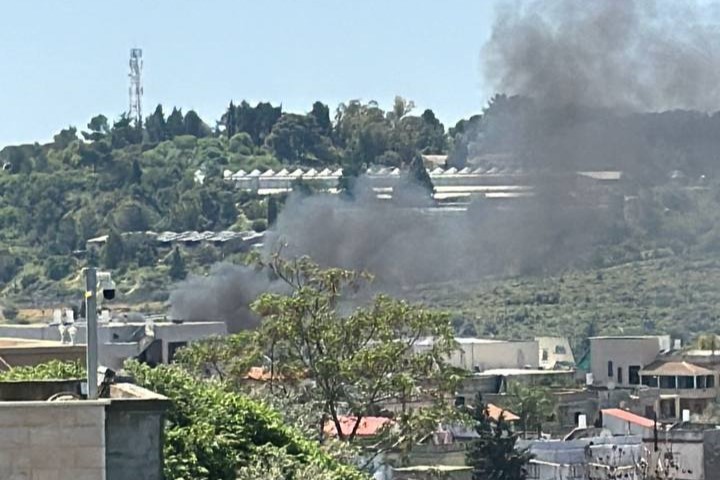
The Ministry of Finance called this week for the government to abandon its “Northern Shield” program, which equips northern communities with bomb shelters, and to instead promote a private grant-based program. The Ministry’s proposal comes in opposition to the stance of Col. Yaniv Wolfer, the Home Front Command officer responsible for implementing the government program. Earlier this month, Wolfer warned that privatizing the construction of bomb shelters would slow down and complicate the process.
The Finance Ministry’s proposed solution would change the funding mechanism for shelter construction and base it solely on personal incentives by providing subsidy grants to households that wish to build bomb shelters, according to their distance from the border. The initial proposal, as described in a letter by Finance Ministry Deputy Budget Director Eli Bing, discusses granting subsidies only to families living in buildings constructed before 1992 and limiting the subsidies to a specific time period to encourage construction. In large cities, the grants would only be given within the framework of urban renewal projects.
The Finance Ministry claims that “Northern Shield,” established five years ago, is being implemented slowly and that its cost has increased significantly over the years, making it difficult for the state to continue its execution. According to Bing, the increased demand for bomb shelters, which are only built by private contractors, has led to a 50% price increase in recent years, with the cost now standing at over 200,000 shekels ($55,000).
Community leaders in the north are strongly opposed to privatizing shelter construction and demand that the state take full responsibility, as it has in communities near Israel’s border with the Gaza Strip. In previous discussions between government ministries and local leadership in the north there had been complete agreement that shelters would be built with full state funding in communities up to one kilometer (0.6 miles) from the border, with the possibility of future expansions.
At the beginning of the month, Col. Wolfer sharply criticized the government and the Finance Ministry for their handling of the program's implementation. Wolfer claimed that the slow construction pace is directly related to the way the Finance Ministry’s fund transfer system operates and the Defense Ministry’s ability to issue tenders for shelter construction.
Wolfer accused the Ministry of Finance of deliberately delaying the budgets needed to implement the government plan and emphasized that the plans to promote shelter construction through personal incentives would further harm overall security in the north. According to Wolfer, out of approximately 10,000 households in border-adjacent communities with the ability to initiate private shelter construction, only 140 have applied for permission and fewer than 20 have begun the construction process.
In addition to the high cost, residents are also deterred by the bureaucratic complexity and the long time it takes for one household to install a shelter compared to an organized, large-scale, and state-funded initiative. The state's process is more efficient, quicker, and more organized than an individual working with a contractor independently.
Implementation of the "Northern Shield" program began after it received funding in the 2019 state budget. The program was meant to receive five billion shekels ($1.37 billion) of funding by 2030. But according to a January report by the State Comptroller, actual funding stood at about 900 million shekels ($246 million), less than 18% of the intended total, and the Ministry of Defense had utilized only about half a billion shekels ($137 million) through 2024, mostly in border-adjacent communities.
A survey by the Upper Galilee Regional Council found that only half of private homes in the area are protected and over 120 public education buildings lack protection, with most lacking civilian evacuation plans.
In the city of Shlomi, which lies less than 10 kilometers (6.2 miles) from the border with Lebanon, only 40 shelters have been built since 2019 out of the 1,000 needed. IDF representatives and community leaders noted that the shortage and underperformance are not isolated incidents but are true for all front-line communities.
This article was translated from Hebrew by Matt Levy.






